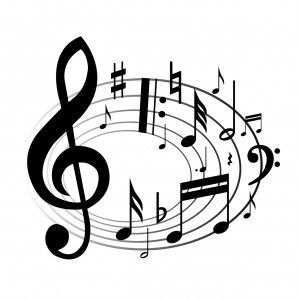The Choral Journal archives dates back to May 1959 and contains many wonderful articles, some of which, yes, are out of date; but there are others that still hold importance for choral conductors in the twenty-first century.
In 1974-1976, Carole Glenn published a fascinating series of interviews with seventeen choral conductors on various questions of concern to choral musicians. Over the next couple of weeks, this weekly ChoralNet blog will highlight several of these installments and share some of the answers given. Following is a list of the conductors who were interviewed:
Elaine Brown, Harold Decker, Robert Fountain, Jane Hardester, Iva Dee Hiatt, Robert Holliday, Joseph Huszti, Kenneth Jennings, Allen Lannom, Daniel Moe, Weston Noble, Paul Salamunovich, Leland Sateren, Howard Swan, Roger Wagner, Dale Warland, and Lois Wells.
Installment 1 deals with choral tone and was published in the Choral Journal in November 1974.
***
In recent years conductors have begun to think of tone in terms of the style of the particular piece that is being performed. For each period, each composer within a period, and each piece by a particular composer, the factors which influence tone would vary. Many conductors have one or more periods to which they relate more comfortably than to others. Although a conductor may never voice his preference, his group will know of it by his facial expressions, his delight in working out details, and his reaction to his group when it performs a piece from this period particularly well. Having been successful in one period, will his choir be able to adapt to other periods equally as well? Thus the following questions were asked:
(a) Do you tend to use various tone qualities when you perform the music of different style periods?
(b) Do you find that your group is equally capable of singing in all styles of music?
Weston Noble – Luther College, Decorah, Iowa
(a) Up to a point. I know that the ideal choir should be able to adjust. If a group is mainly “Camp A” it is going to do sixteenth century, Baroque, and twentieth century music the best. A group in “Camp B” does not perform sixteenth century and twentieth century music as well as it performs Romantic music.
(b) No, I don’t think so. I guess I’ll have to ask a question that I asked at the church workshop in Oregon last summer, “Who could tell me of a choral group that successfully adjusts to each individual period?” I don’t think that any group truly does, because a basic type of tone is indigenous to each group. I also do not think any group performs each period equally well because of the limitations of the director, if nothing else. This doesn’t mean that we can’t do al1 periods. We must do them all, but we must recognize the fact that we don’t do them all equally well.
Jane Hardester EI Camino College, Los Cancioneros, Torrance, California
(a) Yes. The style dictates the tone.
(b) The group may be, but I’m not. You do your best to make the style periods as differentiated as possible. It’s a lifetime process. I couldn’t possibly feel that I could do Bach, Schutz, Gabrielli, Machaud, and Vittoria as well as I could do something that I am closer to because that’s the kind of person I am. I can read and study and work, but when it comes down to it, I stand in front of my choir and I’ve got to conduct the music. I have done all I can do to become Palestrina, to put on my hat that says, “Palestrina.” I will try my level best to do all the things that I know to do – get rid of the vibrato in the soprano section, make sure the balance is equal, make sure that the Latin is well pronounced, that the vowels are pure, etc. I will attempt to do all the things that go with what we have come to know are correct for the Renaissance period. And I’m afraid that it’s still going to sound like Jane Hardester – subjective Jane Hardester. But I’ve got to live two lifetimes before I’m ever going to know any of this. I know that we try to accommodate to the mood, texture, and style period of the piece we’re doing. It is I who usually gets in the way.
________________
ACDA members can read this issue of the Choral Journal online by clicking here (http://acda.org/ccj.asp?ID=1565). Non members can review the benefits and membership categories here. (There is an associate membership option for only $45 a year!)



Leave a Reply
You must be logged in to post a comment.